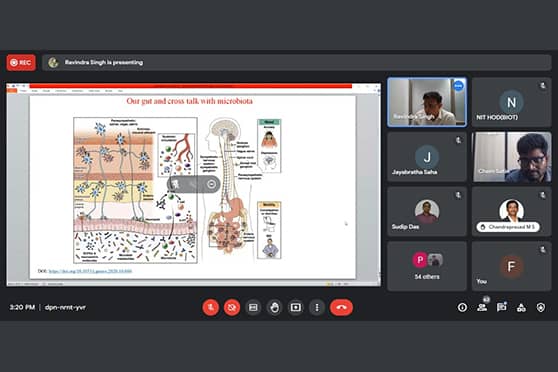NIT Andhra Pradesh invites research in Biovalorisation for production of value-added products


The National Institute of Technology (NIT) Andhra Pradesh is encouraging it’s researchers and faculty members to research in Biovalorisation for production of value-added products. To promote this, NIT Andhra Pradesh organised a five-day online faculty development programme on “Biovalorisation: Trend and Prospects of Value-Added Products” from January 3-7, 2022.
Biovalorisation is a process by which waste is transformed into value-added products by employing microorganisms and biological treatment procedures, thus, contributing to India’s economy significantly to achieve the goals of National Missions like Swachh Bharat, and Make in India – providing a clean environment and generation of value-added chemicals at a lower cost.
Addressing the inaugural event, C.S.P. Rao, director, NIT Andhra Pradesh, said, “Majority of the waste is produced from domestic, agricultural and industrial practices. Management and treatment of a large volume of waste is a very challenging task. Biological treatment of waste with micro-organisms is promising for the treatment of the broad spectrum of waste in an economical method. Further, we can couple the treatment process to generate energy and by employing Biovalorisation value-added products can be produced from waste.”
This faculty development programme aims to bring advancements in the field of Bioenergy through waste utilisation and minimise the dependency on fossil-based fuels to improve energy security.
Rao added that the FDP is emphasised on bridging the gap of ever-increasing demand for technologies that treat the waste in an effective and economical manner as well as resource recovery in the form of energy or platform chemicals. This will encourage researchers to carry out their research with the aim of the utilization of waste as feedstock for the production of energy and valuable commercial products.
This five-day faculty development programme intends to impart advanced knowledge on bio-valorisation of wastes to renewable chemicals and biofuels for faculties, scientists, and research scholars by covering the following core areas— Glyco genomics, Bioconversion of organic waste, Biomass Valorisation, Renewable chemical production, Bio-economy and Industrial waste treatment.